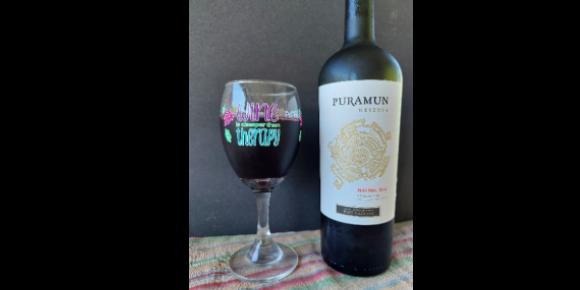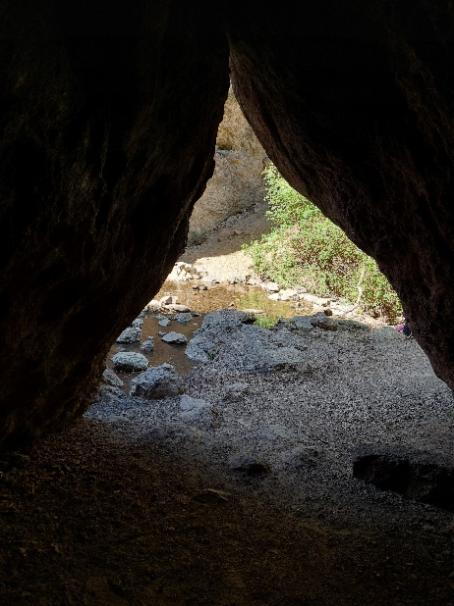Stay tuned… Christine will post content related to grief process, anxiety management, communication and more. If interested in a specific topic, please contact her with your suggestions.
The Subtle Dangers of Alcohol and Grieving
posted: Jun. 02, 2021.

Losing someone close to you has a profound effect on your psychological well-being. If the person lost was a part of your everyday life, then their absence is like a megaphone into your soul. Grief is triggered by a myriad of sights, sounds, smells or just random thoughts or ideas floating around in your head. The sheer magnitude of confronting the reality of a major loss can be overwhelming. For those who have residual issues stemming from childhood, the battle for emotional stability after a major loss is particularly challenging.
As a therapist, I need to maintain mental equilibrium to stay present with my clients and practice the proverbial work-life balance we all face. While this balancing act is a continual adjustment depending on what circumstances are present, I was most challenged when my husband of 24 years died suddenly. Leading up to John’s death, I had been practicing healthy self-care habits, but losing him would put all of my resolve to the test.
One of the bigger surprises I faced in the aftermath was the role alcohol took in my life. My history with alcohol has been fairly tame. In my teens years I partied with friends but eventually drinking tapered off as I got older and focused more on physical and spiritual health.
Over the years my attitude towards drinking ranged from indifference to suspicion as I’d notice how others used and/or misused alcohol. My own use as an adult went through long periods of complete abstinence. My late husband, John and I weren’t regular or heavy drinkers. But we did have the occasional bottle of wine and he liked his microbrews.
Prior to my husband’s death, we had steadily increased our alcohol consumption as a result of influence from friends who were wine connoisseurs. We even joined a local wine club the month before John died. We’d spent our last wedding anniversary at a winery and on a whim we joined their club. We had planned to make it a monthly date day out when we’d go pick up our 2 bottles. That never happened.
I thought I’d cancel my membership after he died since I didn’t need to spend the money on 2 bottles of pricey wine each month but as with many things, I balked at doing so (the psychological impact of a partner’s death brings many surprises). Initially I kept the membership as a memorial to something we had done together before John died. But that meant I now would have a regular supply of wine whereas before I didn’t buy wine for daily use.
Along with my two bottles a month I had free wine tasting every day of the year and I could include a friend. The winery was a short 50-minute drive that included scenic rolling hills of other vineyards. My first drive was alone and I used that time to contemplate what would’ve been. When I got to the winery to pick up my wine, I sat on the bench John and I had taken a selfie weeks before and just wept. I couldn’t let go of the connection to that winery.
Instead I drank more wine. At first I’d give a bottle away to someone I knew couldn’t afford expensive wine as I knew they’d appreciate it. But soon I found that I could polish off 2 bottles a month. Eventually I let go of the wine club and switched to buying less expensive brands at Trader Joe’s or Sprouts. My wine intake stayed steady at about two bottles a month. The amount I drank wasn’t the issue - my motive for drinking was.
Misusing alcohol when grieving is all too common
 One night when I had had enough of being sad, crying my eyes out and just feeling grief-weary I downed a glass. I immediately poured myself another glass and proceeded to drink that. In that moment I knew I was misusing alcohol. Before I finished the second glass I started feeling the effects of the first one (I know, I’m a lightweight). In a split second I knew I was on the verge of choosing something dangerous.
One night when I had had enough of being sad, crying my eyes out and just feeling grief-weary I downed a glass. I immediately poured myself another glass and proceeded to drink that. In that moment I knew I was misusing alcohol. Before I finished the second glass I started feeling the effects of the first one (I know, I’m a lightweight). In a split second I knew I was on the verge of choosing something dangerous.
I looked at my young adult daughter and asked her to take away my glass and (gasp) dump the rest of the bottle down the drain. To my surprise, I didn’t have the strength to do that on my own and I didn’t have the will power to stop. I did, however, have enough presence of mind to admit my weakness and ask for help.
My vulnerability in that moment scared me and the two glasses I had downed hit me hard. As I waited for the effects to wear off, I realized I was in trouble. I quit drinking right then. I needed to institute a period of abstinence to get clarity. What surprised me was how easily it was for me to misuse alcohol. I didn’t have an “issue” with drinking, but it suddenly became an issue when I drank with impure motives.
Some of you reading this account may think that 2 glasses of wine hardly indicate an issue with drinking, and you’d be right. But that’s not the point. I had used alcohol to avoid my feelings of deep sorrow. Doing so only serves to prolong the grief process and has the effect of eroding self-control. As someone who urges my clients to accept their feelings, I found myself in the position that others face when overwhelmed with strong emotions: the desire to numb rather than express their feelings appropriately. Thankfully, I learned my lesson quickly and didn’t need a repeat performance of my lapse in judgment.
Self-awareness is a key to effective grieving
 Eventually I reintroduced alcohol back into my dining experience but with an increased awareness of how and when grief could influence my drinking. I periodically hit the pause button on alcohol consumption if I sense I’ve had a lot of grief triggers and the temptation to imbibe too much is high.
Eventually I reintroduced alcohol back into my dining experience but with an increased awareness of how and when grief could influence my drinking. I periodically hit the pause button on alcohol consumption if I sense I’ve had a lot of grief triggers and the temptation to imbibe too much is high.
This experience taught me how important it is to be brutally honest with myself in my grief. Grieving is hard work. It takes energy, effort and often wipes you out. Being more mindful of how this energy drain affects my normal capacities has been critical for me to ensure I use healthy coping methods. Alcohol is an easy quick trip to numbing land but doesn’t aid my grief progress.
These days I stay attuned to what’s triggering a sad moment, adjust my expectations of myself and practice appropriate sad expressions as needed. Getting outside in particular helps ease some of the pain, but often the only release is through tears. No hiding. No numbing. Just being real and raw with the ebb and flow of my grief when it comes.